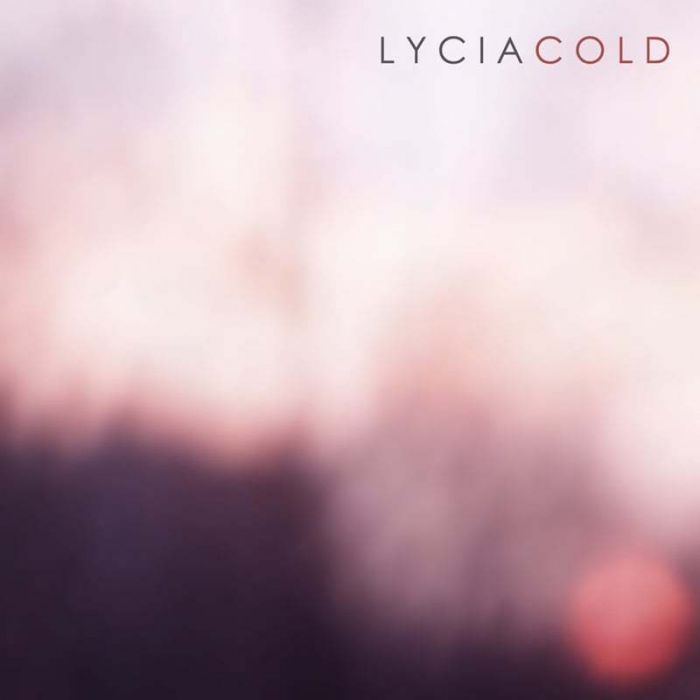Cold by Lycia (Review)

If you’re one of the uninitiated, I’ll admit it: there’s really no easy entrance into Cold, Lycia’s fourth full-length (fifth, if you count 1989’s Wake). At first blush, it’s overwrought and pretentious, rife with any and every goth cliché you can think of, from Mike VanPortfleet’s sinister vocals to lyrics such as “All the aching signs we miss/To live in purple scarlet bliss/And swim with jeweled golden fish/And breathe the autumn air so crisp” (“Snowdrop”) to morose, shadowy atmospherics guaranteed to cause pale folks in long, black robes to start swaying and swirling en masse.
The thing is, Lycia never attempt to deny any of this. They do nothing to deny the clichés inherent in their music. On the contrary, they dive headlong into them with wild abandon, inhabiting them fully, and never once shirking from the stylistic and aesthetic ramifications. As such, the music certainly never transcends its clichés and tropes. Rather, the band’s intensity and integrity transforms those clichés into something that feels wholly original, lively, and perhaps most importantly, convincing.
Originally released in 1996, Cold is noteworthy for several reasons. One, Cold marked the band’s move towards a more atmospheric, expansive sound. Two, its creation and release coincided with Mike VanPortfleet’s move from his native Arizona to the snowbound wastelands of Ohio (hence the abundant winter imagery). Three, it was essentially Lycia’s “breakout” album, earning them fans outside their original goth circles. And four, it marked Tara Vanflower’s growing role within the band, on both vocals and keys.
Even with a slight change in sonic direction, though, Cold is still unmistakably Lycia. While the sound might move/drift in a more ambient manner, the basic elements — VanPortfleet’s skeletal whisper of a voice, his brittle guitars, the ominous drum programming — remain the same. Which, when it works, makes for pretty compelling stuff.
There are moments when Lycia gets a little too caught up in the mood and the moment, and the music becomes a bit too pretentious for its own good. However, that’s always been the case with Lycia’s music going all the way back to Wake — and as I mentioned before, pretentious really goes with the territory. But when Lycia hits their stride, all of the pretense and bombast works entirely in their favor, and the music feels more comprehensive and accomplished than portentous.
“Bare” is the album’s standout track, and like much of the Vanflower-laced tracks in the band’s catalog, resembles a much darker, spookier Cocteau Twins (think the Cocteaus attempting something along the lines of Pornography).
If Victorialand was inspired by Antarctica’s magical landscapes, then “Bare” comes straight from the continent’s long, sunless winters, during which one’s sanity is challenged by the nightbound weeks as the aurora australis shimmers high overhead. VanPortfleet’s guitarwork is especially noteworthy here, capable of creating both icy sheets of noise that seem to suck the very warmth from the air as well as delicate, lofty notes that inject a little light and warmth into the song’s latter moments.
The band sounds nothing short of majestic on “Snowdrop,” approaching the hallowed territory of Dead Can Dance’s earlier albums, back when Lisa Gerrard and Brendan Perry were still exploring the mystical and the arcane in their music. The song moves at a solemn, stately pace, Vanflower’s voice echoes between shimmering towers of icy synths, and the entire song seems to be wrapped up in a winter wind so sharp and cold, it takes the breath away.
Lycia’s world can be a tough one to fully enter into, simply because it’s so easy and tempting to dismiss. However, once you set foot into the band’s dark, twilit realm and surrender, even just a bit, to their whims and fancies, the effect is bracing and even thrilling — much like the coldest and stiffest winter breeze you can imagine.